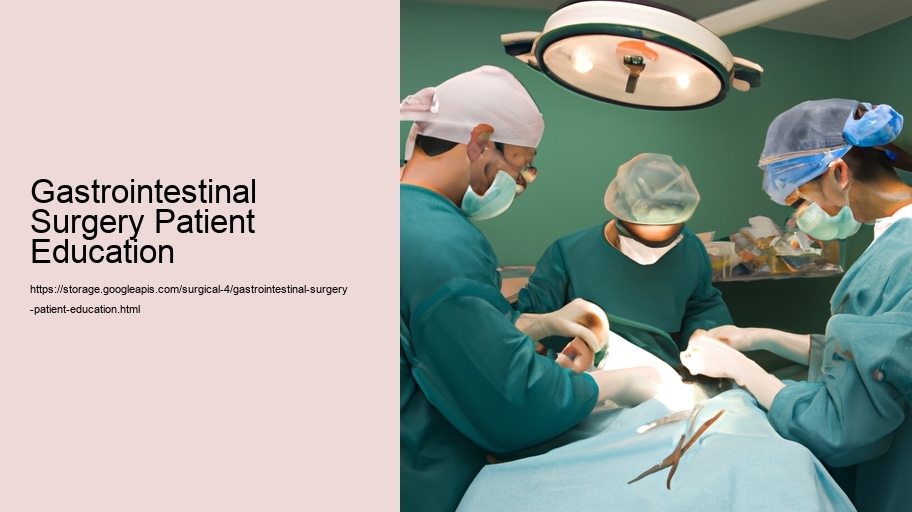Gastrointestinal surgery patient education is a vital aspect of the healthcare process that ensures patients are well-informed about their conditions, the surgical procedures they will undergo, the risks and benefits involved, and the postoperative care required for a successful recovery. This essay aims to delve into the significance of patient education, the different types of gastrointestinal surgeries, and the essential information patients should be equipped with before and after their surgery.
First and foremost, the need for gastrointestinal surgery patient education cannot be overstated. It is a process that empowers patients, allowing them to make informed decisions regarding their health and treatment options. It also helps alleviate anxiety by demystifying the surgical process and setting realistic expectations for recovery. When patients understand their role in the preoperative and postoperative phases, they are more likely to comply with medical advice, which can lead to better outcomes.
Gastrointestinal surgery encompasses a range of procedures that target the digestive system, which includes the esophagus, stomach, small intestine, large intestine (colon), rectum, liver, gallbladder, and pancreas. Common surgeries include appendectomies, cholecystectomies (gallbladder removal), and colectomies (colon resection), among others. Some procedures are performed to treat malignancies, such as colorectal cancer, while others address benign conditions like inflammatory bowel disease or gastrointestinal obstructions.
Before undergoing gastrointestinal surgery, patients need to understand the specific nature of their procedure. For instance, if a patient is preparing for a colectomy, they should know whether it is a total or partial removal, how it will be performed (open surgery or laparoscopically), and the potential need for a temporary or permanent stoma. Understanding these details helps patients mentally prepare for the changes to their bodies and lifestyle adjustments that may follow.
Preoperative education also involves guidance on how to prepare for surgery. This may include dietary restrictions, bowel preparation protocols, medication adjustments, and cessation of certain activities such as smoking, which can impact healing. Patients should also be informed about the expected duration of the surgery, anesthesia, and the risks associated with the procedure, such as infection, bleeding, or complications related to anesthesia.
Following surgery, patient education shifts to focus on recovery and rehabilitation. It is crucial for patients to understand the importance of pain management, wound care, dietary modifications, and physical activity limitations. They should be informed about the signs of possible complications, such as fever, excessive pain, redness or discharge at the surgical site, and changes in bowel habits. This knowledge enables them to seek timely medical attention if needed.
Additionally, patients may need to learn about the use of medical equipment, such as drains or ostomy bags, and how to care for them properly. Support services, such as ostomy support groups or dietary counseling, can be invaluable in helping patients adapt to life after surgery.
In conclusion, gastrointestinal surgery patient education is an indispensable part of the surgical process. Educating patients not only contributes to a smoother surgical experience but also plays a critical role in ensuring successful long-term outcomes. By receiving comprehensive information on their condition, the surgery itself, and postoperative care, patients are equipped to navigate their surgical journey with confidence and become active participants in their own healthcare. It is the duty of healthcare providers to deliver this education in a compassionate, clear, and accessible manner, paving the way for optimal recovery and quality of life for their patients.
